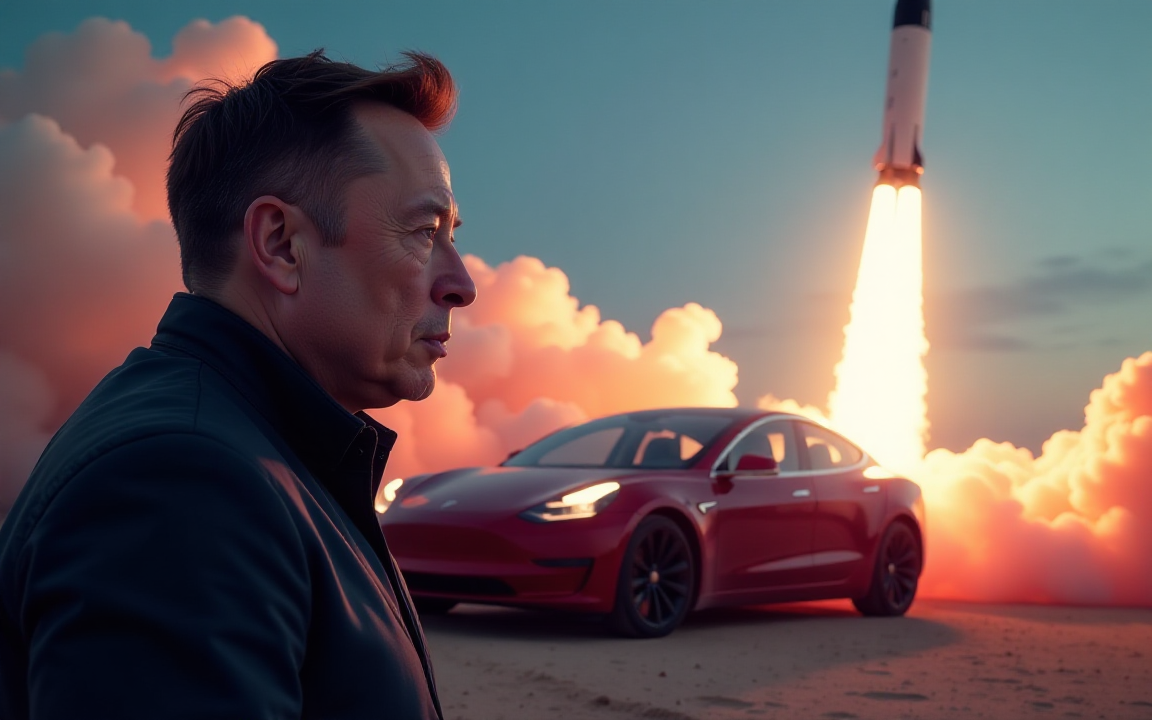
Elon Musk is diving back into his companies, declaring a renewed, round-the-clock focus on Tesla, SpaceX and his AI venture xAI, just as each prepares for high-stakes moves that could shape their futures.
On Wednesday evening, Musk announced he was stepping away from his role at the Department of Government Efficiency (DOGE), a four-month initiative aimed at cutting federal spending by up to $2 trillion—a target that has so far seen only modest progress.
“Back to spending 24/7 at work and sleeping in conference/server/factory rooms,” the billionaire wrote on X last Saturday.
The pivot comes at a time of mounting operational and reputational challenges for Musk’s empire.
While some conservative policymakers continue to view Musk’s involvement as a symbolic victory for budget hawks, others in the business world, including Musk, have acknowledged that his political engagements have hurt his businesses.
From Tesla’s sliding sales to SpaceX’s Mars ambitions and the AI arms race heating up against OpenAI and others, the workload is immense — and the stakes are higher than ever.
At Tesla, Robotaxi launch, falling Europe sales a priority
At Tesla, Musk’s renewed involvement comes as the company nears the launch of its long-promised robotaxi service in Austin, Texas.
The service is expected to debut next month, and Musk recently highlighted road tests of self-driving Model Y vehicles operating without anyone in the driver’s seat, stating there had been “no incidents.”
Tesla is betting heavily on autonomy to counteract falling sales and eroding market share.
In the US and Europe, Tesla deliveries have slumped in recent months, with European sales declining for a fourth straight month in April.
For the first time, Chinese rival BYD overtook Tesla in sales.
While Tesla remains the largest EV maker in the US, investor confidence has wavered, not least because of Musk’s increasingly political profile.
His role in the DOGE, and $300 million in Republican campaign donations have fuelled buyer backlash and added volatility to Tesla’s stock.
During Musk’s absence this spring, the Tesla board reportedly initiated informal talks with executive search firms to plan for potential CEO succession, though the company has denied any formal search process.
Tesla chair Robyn Denholm said the board remains confident in Musk’s leadership and emphasized a renewed focus on the company’s “exciting growth plan.”
Investors have reacted positively to Musk’s return.
Tesla’s market capitalization, which had plummeted after Trump’s election and Musk’s increasing political involvement, has rebounded above $1 trillion on the news.
SpaceX pursues Mars as setbacks mount
Musk’s other major undertaking, SpaceX, is trying to prepare for what could be its most ambitious mission yet: a Mars-bound test of its Starship spacecraft in 2026.
That year presents a rare orbital opportunity, when Earth and Mars will be at their closest.
But serious technical challenges persist.
Earlier this year, two Starship prototypes exploded in flight.
The most recent test flight failed to deliver on a critical objective: testing the spacecraft’s heat-protective tiles during atmospheric reentry.
SpaceX lost contact with the vehicle before the tile system could be assessed.
Despite setbacks, SpaceX retains strong government ties.
Its partially reusable Falcon rockets continue to carry out missions for NASA and the Pentagon.
On Friday, SpaceX is scheduled to launch a GPS satellite for the US military.
The company’s Starlink satellite internet network, with over 7,500 satellites in orbit, has become another vital business line — one that has earned it increasing favour from US intelligence agencies.
Intense rivalry between xAI and OpenAI another frontier
Musk’s attention is also shifting toward artificial intelligence, a field he has long warned could pose existential risks.
His AI startup, xAI, recently merged with X (formerly Twitter) in a bid to pool resources and accelerate the development of artificial general intelligence — what he calls “digital superintelligence.”
The combined entity has introduced Grok, a chatbot that Musk claims will surpass competitors.
The company is working on high-profile partnerships to extend Grok’s reach, including a potential collaboration with Microsoft.
However, efforts to secure a place in a major Middle East AI deal were unsuccessful, The Wall Street Journal reported.
Musk’s return to xAI signals a sharpening rivalry with former partners at OpenAI, which he co-founded but later criticized for being too aligned with corporate interests.
Neuralink and Boring Company progress slowly
Beyond Musk’s primary focus areas, his other ventures are making slow but notable progress.
Neuralink, now led by Shivon Zilis, is entering a new phase of clinical testing in the Middle East aimed at patients with motor and speech impairments.
The brain-implant startup has already implanted chips in at least three paralyzed patients who can now interact with computers using their thoughts alone.
Meanwhile, The Boring Company, under longtime Musk deputy Steve Davis, is working on a proposed 68-mile tunnel system in Las Vegas.
While the company has been unable to break ground on major projects elsewhere, the Las Vegas system is gradually expanding.
Davis, like Musk, also stepped down from DOGE this week.
The post What awaits Musk at Tesla, SpaceX, and xAI as he steps back from DOGE to re-focus on business appeared first on Invezz

